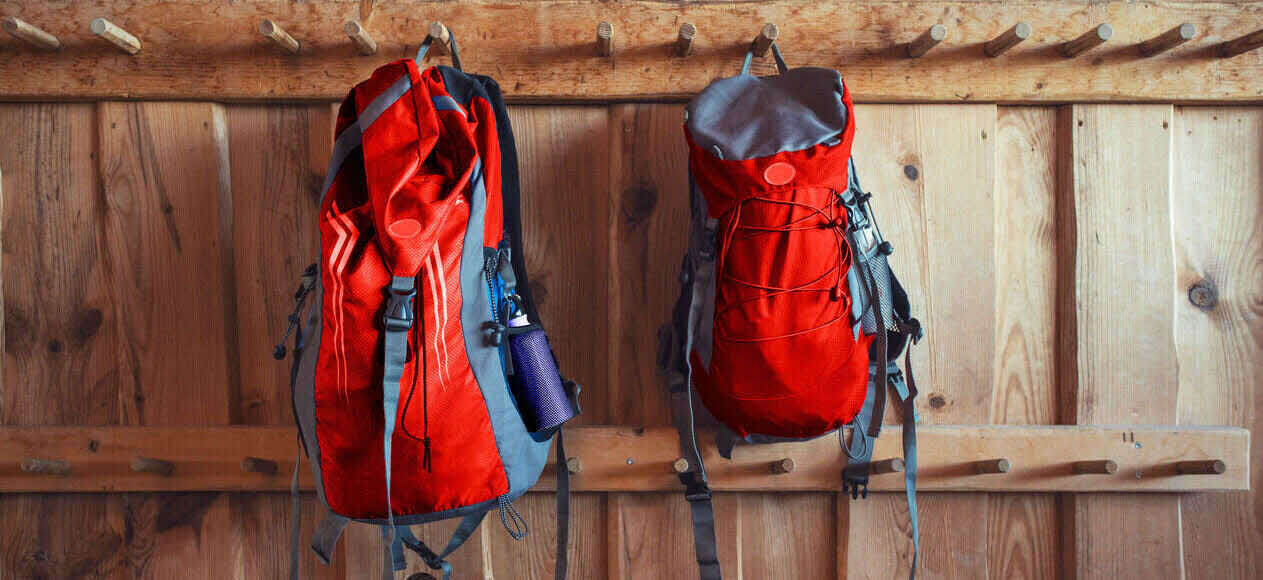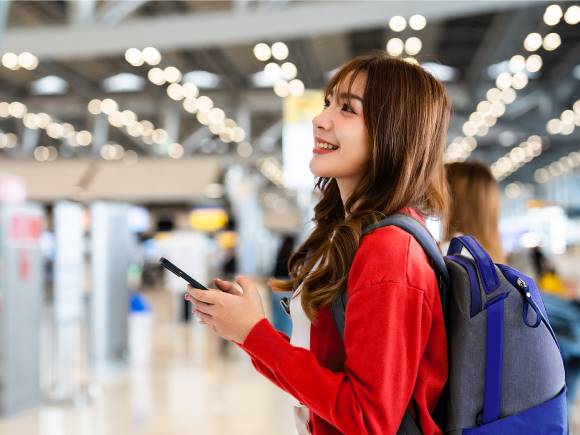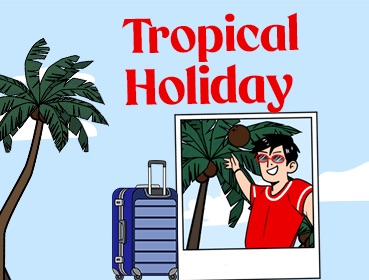Travel smart, spend less
Why every frugal adventurer should consider trekking holidays
Have you gotten to the point where all holidays feel like an expensive, same-ish series of frustrations? If you’re at the stage where the thought of a tour bus makes you groan, or the last thing you need is to see a bunch of shopping malls, then it may be time for a trekking holiday. This is goes beyond tourism: it’s true immersion and travelling, and it’s as good for your health as it is your wallet.
What is a trekking holiday?
This refers to a trip where - instead of listening to the drone of the air-con - you actually go out and walk in the country. This usually involves established hiking trails, with varying levels of difficulty: some are established and easy, and great for family trips. Others, like stretches of the famed 3,500+ kilometre Appalachian Trail, are life-changing challenges worth major bragging rights.
There are two general forms of trekking holiday: the first one, which is sometimes called a “walking holiday,” is when you don’t camp outdoors; you’re still using hotels, motels, vacation home rentals, and so forth.
The second, which is for more seasoned or adventurous travelers, is a “true” trekking trip, where you’re camping out along your trail (again though, there are varying levels of difficulty marked out for you, so on the easier ones it’s more like a series of fun picnics and less like field camping).
The one thing both have in common is that there’s a planned route, which involves several days' journey on foot. For the more challenging routes, you’ll usually have to join a guided group; but the easier ones may be possible without a guide.
That sounds tough, why would I do something like that?
Some of you are already searching for hiking shoes online. If you’re the outdoorsy type, you probably don’t need much convincing. But even if your goal is a more laid back or relaxing trip, there are reasons to make it a trekking trip:
- You get to see things other types of tourists never will
- It’s a great way to truly disconnect from your working life
- There is better social interaction, with a wider range of interesting people
- It can be better for the environment
- It’s an amazing way to get fit
1. You get to see things other types of tourists never will
When you’re willing to go on foot, you can enter areas that conventional tour groups can’t take you. Guided trekking tours exist for places like Svalbard Archipelago in Norway (see real arctic wildlife!), the Corsican Coast, the spooky Transylvanian Alps (Dracula’s home turf), and more.
Many of these go where coach buses can’t take you, or where you’d have to spend thousands on gimmicks like a helicopter flight (then you get to see it for a few minutes before it’s gone).
If your goal is to truly experience the world around you, this is the way nature intended for it to happen, and it’s a level of satisfaction you can’t get elsewhere. Or if you just want to be Instagram famous, well, you’ll have pictures that very few other people have the chance to take.
2. It’s a great way to truly disconnect from your working life
If you go on a conventional holiday where you’re sitting in hotel lounges, visiting malls, etc. There's a dangerous tendency to end up working. Admit it: at some point, you will probably be looking at your work email or a text message, and then it’s off to boot up your laptop “just to do this one thing”.
Trekking holidays take you out far into nature, where your mind won’t be lured back to thoughts of Monday budget meetings, or whatever stresses you out. When you wake up in the Sierra Nevada mountains, or the foothills of Peru, you're better able to cleanse yourself of workplace stress. The office truly becomes a world away from you.
3. There is better social interaction, with a wider range of interesting people
Whether you’re with your family, friends, or a guided group from different parts of the world, trekking holidays give you more time for interaction. There’s no rushing you from point-to-point on some boring itinerary (complete with tourist traps).
These multi-day walks are the best time to truly get to know people. That’s when you have genuine conversations, learn about one another’s backgrounds, pick up useful life lessons, etc. This is especially good for children and teenagers who are too cloistered, and whose best friends are only found online.
4. It can be better for the environment
This depends on the nature of the trip, but in general, a trekking holiday will leave a smaller carbon footprint than a conventional one. You’re not driving from point-to-point, not using heating or air-conditioning, and you tend to buy fewer things. On more advanced trips, the guides may even show you how to find and prepare food safely in a natural setting; so you don’t need a restaurant supplied by food delivery trucks.
There’s also the possibility that, when your children see the natural world in all its beauty, there’ll be a greater chance they care about it. Because it’s a bit hard to feel the importance of clean rivers or forest ecologies, when our children’s experiences of them all come from behind a glass screen at the zoo.
5. It’s an amazing way to get fit
It’s hard to commit to an exercise routine in the gym, because the gym is boring. There, we’ve said it. It’s mostly doing repetitive things in an air-conditioned box.
Trekking holidays provide a refreshing way to get fit, without that kind of dullness. Instead of going nowhere on a treadmill, you could be watching the sunset as you stroll past Mount Fuji, or watching moose and other wildlife in a park in Idaho (from a safe distance and with guidance, of course).
And when you make it up to a vantage point, your calves may still be aching, but the view makes it way more rewarding than another 15 minutes on that Stairmaster.
So if you feel a need for some extra motivation on your fitness programme, a trekking holiday can be a good way to inspire yourself.
Make sure to approach trekking holidays safely though
Always ensure you go with a reputable company, when picking a guided tour. It’s also a good idea to consult with the company on whether the trek is right for your level; if you’re not in tip-top shape yet, it may be better to take on shorter, easier trips first.
Finally, before you sign up for a trekking holiday, ensure it can be covered by travel insurance. Some of the key points of coverage are medical evacuation costs (in case you need to be flown to a hospital for treatment), and personal accident coverage. Never go on trekking holidays with unregistered or unlicensed guides, as this may void your policy. When in doubt, check with your insurer before signing up for the trip.
Let us match you with a qualified financial representative
Our financial representative will answer any questions you may have about our products and planning.








